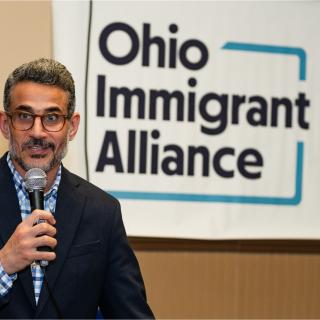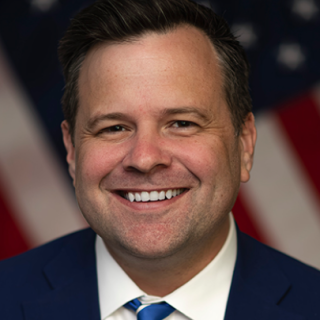Ahmed Gallab’s Parliament meets Radiohead band Sinkane exists as exemplification of the potential of a Columbus artist. Sinkane’s latest release City Slang We Belong is a scorcher which anyone that likes Parliament, Prince, and LCD Soundsystem would find pleasing.
Ahmed attended OSU. Ahmed played at Cafe Bourbon Street, and the Legion of Doom. Sinkane has performed on Democracy Now and several other TV shows.
Which is the selling point for We Belong? Beastie Boys or Okay Afrika? Sinkane’s We Belong is co-produced by the Beastie Boy’s sampling into live instrumentation guru Money-Mark.
Sinkane’s We Belong features a crooning from Bilal. Features don’t overshadow Sinkane but Soulquarians’ Bilal does indicate Sinkane’s musical altitude. Bilal singing does signify Okay Africa press is an underrated music accolade.
Sinkane lives in New York City where he has shared stages with both Pharaoh Sanders, and Femi Kuti. Sinkane makes world music that people who love Bad Brains would appreciate.
Sinkane’s next Columbus Concert is June 30th at Natalies.
I interviewed Sinkane for Wes Flexner’s Rock N Roll Show Wednesdays at 7pm 92.7 / 98.3 wcrsfm.org. In this Columbus Free Press excerpt of our interview, Sinkane discusses a couple of things important in Sinkane’s nurturing: Daymon Dodson and Sudan, Africa.
Wes Flexner: Sinkane dedicated his Black Violin November 14, 2025 performance toward Daymon Dodson in Columbus. Why was that important for that mention?
Ahmed: Daymon is a very, very influential person in my life. Probably in my adult, like, one of the top 3 influential people. He was the first black person I met as an adult who received me and was open in this way that I hadn’t ever really experienced before,
I grew up feeling weird amongst the black community. In High School…and in Columbus. The way I dressed. The way I talked. The music I listened to. The band I played in wherever, was not very welcomed in the black community.
Daymon Dodson welcomed it. Made me feel seen. Made me feel safe. Daymon Dodson was a supporter of the music I made.
Daymon was a really open person. Not only me, but to the community. All of us. When he passed away it was a profound loss on us. We all connected with Daymon in a wholistic way.
We kinda felt seen by him. Everyone felt seen by him. Without Daymon, I don’t know if I would’ve had the confidence to do what I wanna do the way that I’m doing it. I feel instinctive, inspired to figure out what else I can do musically with my voice.
Every one of my albums, I write in my liner notes. I write Long Live Daymon Dodson.
Every time I’m recording a new song. Every time I’m playing I think of him a lot. Because it was the spark I needed back when I was 20 years-old
Wes Flexner: You’ve lived in Columbus, Kent, London via Sudan. What were the circumstances of your family immigrating from Sudan?
Ahmed: Ah, my father was a diplomat, Sudanese diplomat, living in the U.K. That’s where I was born. When we went back to Sudan he continued to work aiding the government. And, within maybe a couple years after I was born, he went to the US to do this University fellowship program in Boston.
It just so happened to be around the time of the elections. The Coup happened that year. Omar al-Bashir overthrew the Democratic government which my father was affiliated with. So, my family was here in Boston. My dad was out of job and he started realizing the situation at hand. A lot his friends were disappearing, being killed or getting imprisoned.
So we applied for asylum here. We gained asylum. I think everyone thought – his might not last that long. A three hour tour kinda thing. It just never stopped until 2017, really. It was a bit of an interesting upbringing.
Once we receive asylum, which as a process in the United States, it could take up to 8 years to get your asylum. It doesn’t take too long. You can’t leave for a long time, after you receive asylum. 8 years into this asylum we could finally go back.
My mom, sisters and I would sneak back to Sudan to see family, come back home. It was a weird, but unfortunate situation to for us to get here. But without it, I would be here at all.
Wes Flexner: There was a coup that overthrew Sudan’s government. Do you know which year that was?
Ahmed: 1989
Wes Flexner: Is this the same problem as the latest humanitarian crisis in Sudan?
Ahmed: No, not even close. It’s born out of it but the Coup happened in 1989. Omar al-Bashir took over the government of Sudan. Took over the country. Military Dictator who reigned for 30 plus years.
Omar al-Bashir was the longest standing dictator in African history. So, that’s something people should know about. Really weird situation. It happened.
In 2017, the people of Sudan overthrew him. Peaceful protest overthrew his government. They were then helped by the Sudanese army. The army and militia, which was called the RSF. Rapid Support Forces. Which rebranded into that name from the previous name, Janjaweed.
Which was military militias funded by Omar al-Bashir and other people outside of the country.
These two military factions decided to connect with the people. Align themselves with the people. Saying they were gonna help then. In turn, what they ended up doing is killing honest, innocent peaceful protesters, civilians and regaining the country power of the country to themselves. The two of them started fighting against one another. This has led to where we are at right now.
Omar al-Bashir has something to do with where we are at right now. Ultimately the two military factions have exploded into where we are.
Wes Flexner: Dictator Omar al-Bashir reigned for 30 years. Peaceful protests. Military factions overthrew the government under him. The military factions united and decide they are gonna be dictators themselves.
Ahmed: Then they decided to fight against each other.
Wes Flexner: They’re fighting with each other. Why is the current Sudan situation considered a genocide?
Ahmed: The government of Sudan. The military factions are killing people. They are fighting each other at the expense of Sudan. No one can walk out of their houses right now without fear of being sniped. Being killed.
There isn’t anything the civilians can do to protect themselves from having their own “government” from killing them.
No one had worked in the country for two years. All the markets are closed. Finding food is hard. Scarce. There is massive famine going on. There’s that.
The majority of people in Sudan are displaced. They are going into other places to try to find a way to live. Nine million people have been displaced, 400,000 people have left the country. These numbers are really small. I don’t have the full numbers. That’s a pretty large scale evacuation. That’s a large scale displacement of people.
Women are completely at risk because they are getting raped. Getting raped to the point where these women are banding together and committing mass suicide so they don’t get raped.
Wes Flexner: That’s terrible.
Ahmed: No one feels safe. No one can eat. The hospitals are closed. So if anyone is sick they are dying. When they are fleeing the country, the circumstances are pretty dire. They will just die on their way out. My cousin died on his way out.
No one is talking about it, which is kinda crazy, y’know. It’s not a sexy enough story for people to talk about. Sudanese people are trying to find ways to get food to people, to get information, to help them get out. Figure out how to live their lives. It’s very dire.



